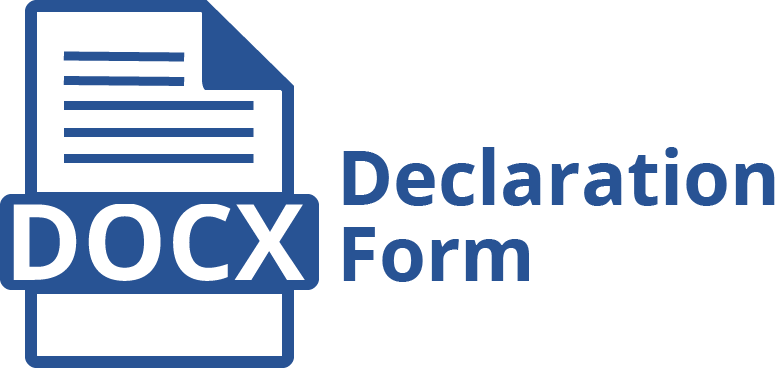Pengelompokan Keruing (Dipterocarpus spp.) di Indonesia Menurut Karakter Buah
Dwi Tyaningsih Adriyanti(1*), Soekotjo Soekotjo(2), Mochammad Na'iem(3), Anto Rimbawanto(4)
(1) Departemen Silvikultur, Fakultas Kehutanan, Universitas Gadjah Mada Jl. Agro No. 1 Bulaksumur, Sleman 55281
(2) Departemen Silvikultur, Fakultas Kehutanan, Universitas Gadjah Mada Jl. Agro No. 1 Bulaksumur, Sleman 55281
(3) Balai Besar Penelitian dan Pengembangan Bioteknologi dan Pemuliaan Tanaman Hutan Jl. Palagan Tentara Pelajar KM. 15, Sleman 55582
(4) Balai Besar Penelitian dan Pengembangan Bioteknologi dan Pemuliaan Tanaman Hutan Jl. Palagan Tentara Pelajar KM. 15, Sleman 55582
(*) Corresponding Author
Abstract
Status taksonomi Famili Dipterocarpaceae telah mengalami beberapa kali perubahan. Menurut tinjauan klasifikasi yang disusun oleh Heim, Symington, Meijer, Maury, dan Ashton bahwa Dipterocarpus memiliki hubungan yang cukup dekat dengan Anisoptera sehingga dalam beberapa klasifikasi digambarkan dengan menuliskan keduanya dalam satu kelompok. Namun, Heim memiliki pandangan yang berbeda dengan 4 ahli yang lain yaitu membagi genus Dipterocarpus menjadi 5 seksi yaitu sphaerales, angulati, plicati, alati, dan tuberculati. Penggolongan yang dilakukan oleh Heim atas Dipterocarpus ternyata didukung dengan keterangan yang dikemukakan oleh Symington bahwa ke-5 seksi dapat dideteksi dari kelopak buah yang membentuk tabung. Penelitian ini bertujuan untuk mengetahui kedudukan seksi dalam genus Dipterocarpus ditinjau dari karakter buahnya. Materi sebanyak 38 spesies Dipterocarpus dan 3 Anisoptera dikoleksi dari sebaran alaminya kemudian diidentifikasi menggunakan prosedur standar dan hasilnya ditabulasikan dalam bentuk matrik. Terdapat 48 karakter meliputi seluruh organ, namun yang digunakan dalam penelitian ini dibatasi pada 9 karakter khusus pada organ buah. Analisis dilakukan secara statistik dengan software NCSS seri 10 untuk mendapatkan dendrogram yang akan menggambarkan hubungan kedekatan antar spesies. Hasil penelitian memperlihatkan bahwa kedudukan seksi dalam Dipterocarpus dapat dibuktikan secara nyata melalui karakter morfologinya. Dengan memanfaatkan Anisoptera sebagai outgroup, diketahui bahwa Dipterocarpus dari seksi sphaerales paling dekat dengan Anisoptera, kemudian diikuti oleh tuberculati, angulati, alati, dan plicati.
Kata kunci: pengelompokan, Dipterocarpus, seksi, karakteristik, buah
Classification of Keruing (Dipterocarpus spp.) in Indonesia on the Basis of Fruit Characters
Abstract
The taxonomy status of Dipterocarpaceae family has been changed for several times. According to the review of classification compiled by Heim, Symington, Meijer, Maury and Ashton, the genus Dipterocarpus had quite close relations with Anisoptera, therefore, in some classifications they were described by writing in a group. However, Heim had a different point of view from four other experts as he divided the genus Dipterocarpus into 5 sections: sphaerales, tuberculati, angulati, alati and plicati, The classification done by Heim on Dipterocarpus were supported by Symington that the 5 sections could be detected from the fruit petals forming a tube. This study aimed to determine the position of the species in the genus of Dipterocarpus in terms of fruit characters. There were 38 species of Dipterocarpus and 3 species of Anisoptera used in the research which were collected from the natural distribution and then were identified using standard procedures, and the results were tabulated in a matrix. There were 48 characters from the entire organ, but only 9 fruit characters used in this research. Statistical analysis was done with NCSS software series 10 to build a dendrogram and to draw the hierarchical of relations between species. The results showed that the position of section in Dipterocarpus was significantly provable through morphological characters. By utilizing Anisoptera as an outgroup, it was known that Dipterocarpus of sphaerales section was closest to the Anisoptera, followed by tuberculati, angulati, alati and plicati.
Keywords
Full Text:
PDFReferences
- Anonimous. 1991. Kebun Percobaan Haurbentes, Jasinga, Bogor. Badan Penelitian dan Pengembangan Kehutanan, Departemen Kehutanan, Jakarta.
- Anonimous. 2000a. Manual of the Larger and More Important non Dipterocarp Trees of Central Kalimantan Indonesia. Vol. 1. Forest Research Institute, Samarinda, Indonesia.
- Anonimous. 2000b. Manual of the Larger and More Important non Dipterocarp Trees of Central Kalimantan Indonesia. Vol. 2. Forest Research Institute, Samarinda, Indonesia.
- Anonimous. 2002. Laporan Eksplorasi dan Koleksi Buah Dipterocarpa. Tidak dipublikasikan. Proyek ITTO - Fakultas Kehutanan Universitas Gadjah Mada. Yogyakarta.
- Ashton PS. 1982. Dipterocarpaceae. Flora Malesiana Series I Flowering Plants Spermatophyta. Lembaga Biologi Nasional, Bogor.
- Danimihardja S & Notodihardjo D. 2001. An Alphabetical List of Plant Species Cultivated in Hortus Botanicus Bogoriensis Botanic Gardens. National Biological Institute, Indonesian Institute of Sciences, Bogor.
- He G, Barkley NA, Zhao Y, Yuan M, Prakash CS, & Lukens L. 2014. Phylogenetic relationships of species of genus Arachis based on genic sequences. Genome 57(6), 327-334.
- Indrioko S. 2005. Chloroplast DNA Variation in Indonesian Dipterocarpaceae – Phylogenetic, Taxonomic, and Population Genetic Aspects. Disertasi. Cuviller Verlag, Gottingen.
- Jones SB & Luchsinger AE. 1986. Plant Systematic. McGraw Hill Book Company, USA.
- Kartawinata K. 1983. Species-species Keruing. Lembaga Biologi Nasional – LIPI, Bogor.
- Kettle CJ, Maycock CR, & Burslem D. 2012. New directions in Dipterocarp biology and conservation: A synthesis. Biotropica 44(5), 658-660.
- King G, Honaker J, Joseph A, & Scheve K. 1999. Analyzing Incomplete Political Science Data: An Alternative Algorithm for Multiple Imputation. Tidak dipublikasikan. http://gking.harvard.edu/stats.shtml.
- LaFrankie JV. 2010. Tress of Tropical Asia. Black Tree Publications, Inc., Phillippines.
- Lawrence GHM. 1969. Taxonomy of Vascular Plants. The MacMillan Company, New York.
- Maury-Lechon G & Curtet L. 1998. Biogeography and Evolutionary Systematics of Dipterocarpaceae. Dalam : A Review of Dipterocarps Taxonomy and Silviculture. Appanah S & Thurnbull JM (Eds). Center for International Forestry Research, Bogor.
- Newman MF, Burgess PF, & Whitmore TC. 1999a. Pedoman Identifikasi Pohon-pohon Dipterocarpaceae di Pulau Jawa Sampai Nugini. PROSEA Indonesia, Herbarium Bogoriense, Bogor.
- Newman MF, Burgess PF, & Whitmore TC. 1999b. Pedoman Identifikasi Pohon-pohon Dipterocarpaceae di Pulau Sumatera. PROSEA Indonesia, Herbarium Bogoriense, Bogor.
- Newman MF, Burgess PF, & Whitmore TC. 1999c. Pedoman Identifikasi Pohon-pohon Dipterocarpaceae Pulau Kalimantan. PROSEA Indonesia, Herbarium Bogoriense, Bogor.
- Ng FSP. 1991. Manual of Forest Fruits, Seeds, and Seedlings. Vol. 1. Malayan Forest Record No. 34, Forest Research Institute Malaysia, Kepong, 52109, Kuala Lumpur, Malaysia.
- Nurainas. 2004. Artabotrys (Annonaceae) in Sumatra. Floribunda 2(5), 117-127.
- Radford AE, Dickinson WC, Massey JR, & Bell CR. 1974. Vascular Plant Systematic. Harper & Row Publishers, USA.
- Rasnovi S. 2004. Konsep spesies: Mengapa fenetik atau filogenetik? Floribunda 2(5), 138-143.
- Simpson MG. 2006. Plant Systematics. Elsevier Academic Press. USA.
- Slik JWF, Poulsen AD, Ashton PS, Cannon CH, Eichhorn KAO, Kartawinata K, Lanniari I, Nagamasu H, Nakagawa M, van Nieuwstadt MGL, Payne J, Purwaningsih, Saridan A, Sidiyasa K, Verburg RW, Webb CO, & Wilkie P. 2003. A floristic analysis of the lowland dipterocarp forests of Borneo. Journal of Biogeography 30(10), 1517-1531.
- Soepadmo E & Wong KM. 1995. Tree Flora of Sabah and Sarawak. Forest Research Institute of Malaysia, Kuala Lumpur.
- Soerianegara I & Lemmens RHMJ. (Eds.). 1994. Plant Resources of South-East Asia. No. 5 (1) Timber Trees: Major Commercial Timbers. PROSEA, Bogor.
- Sokal RR & Sneath PHA. 1963. Principles of Numerical Taxonomy. WH Freeman and Company, San Fransisco, USA.
- Sutisna U, Kalima T, & Purnadjaja. 1998. Pedoman Pengenalan Pohon Hutan di Indonesia. Yayasan PROSEA, Bogor.
- Symington CF. 1974. Foresters’ Manual of Dipterocarps. Malayan Forest Records No. 16, Penerbit Universiti Malaya, Kuala Lumpur.
- Vogel AF. 1987. Manual of Herbarium Taxonomy. UNESCO, Jakarta.
- Whitmore TC, Tantra IGM, & Sutisna U. 1990. Tree Flora of Indonesia, Check List for Kalimantan. Pusat Litbang Hutan, Bogor.
- Zamora JC, Fransisco DC, Kentoro H, & Martin MP. 2014. Systematics of the genus Geastrum (Fungi: Basidiomycota) revisited. Taxon 63(3), 477-497.
Article Metrics
Refbacks
- There are currently no refbacks.
Copyright (c) 2016 Jurnal Ilmu Kehutanan
License URL: https://creativecommons.org/licenses/by-nc-sa/4.0/
© Editorial Board Jurnal Ilmu Kehutanan
Faculty of Forestry, Universitas Gadjah Mada
Building D 2nd floor
Jl. Agro No 1, Bulaksumur, Sleman 55281
Phone. +62-274-512102, +62-274-550541, +62-274-6491420
Fax. +62-274-550541 E-mail : jik@ugm.ac.id
former website : jurnal.ugm.ac.id/jikfkt/
new website : jurnal.ugm.ac.id/v3/jik/
Indexed by:
Jurnal Ilmu Kehutanan is under the license of Creative Commons Attribution-ShareAlike 4.0 International








